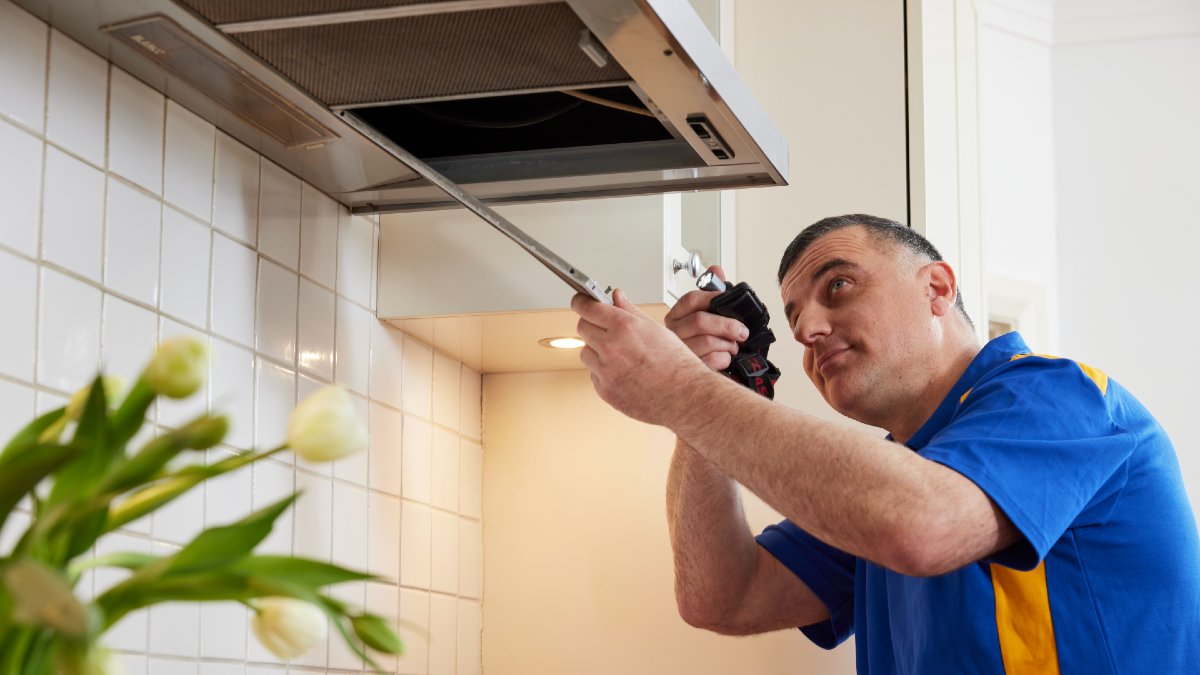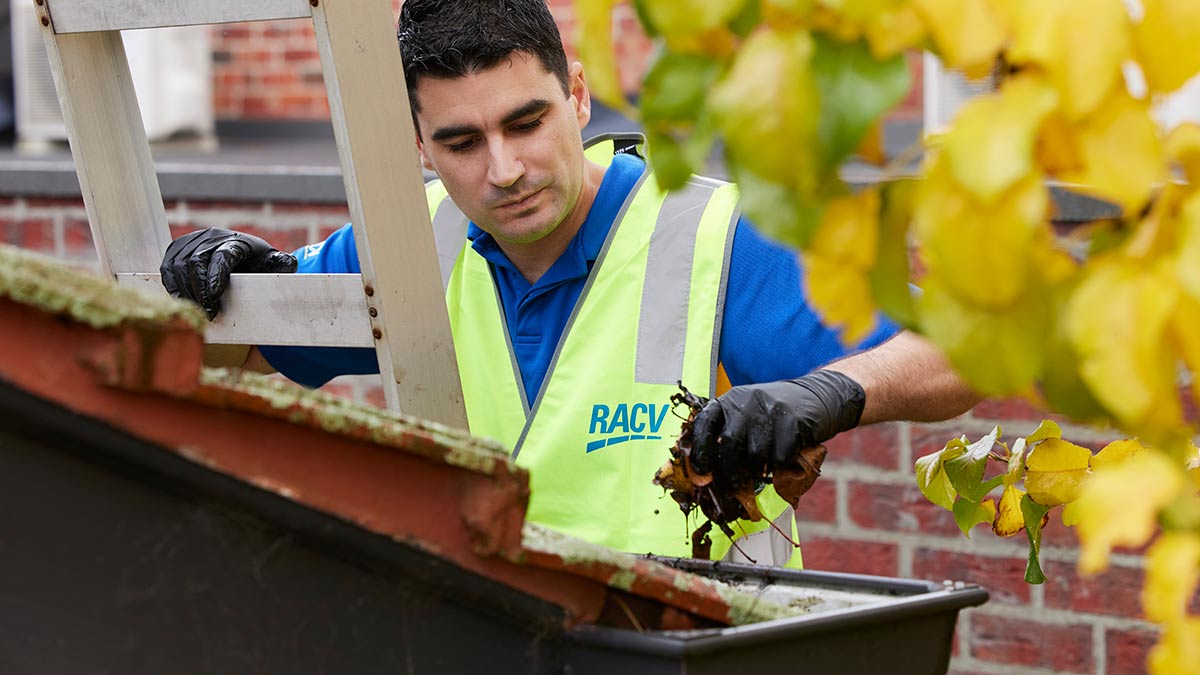Learn how to insure your handbag, including luxury and designer bags, against events like theft and damage by using your contents insurance policy.
How regular house maintenance can help with home insurance claims

The home you live in is typically your most valuable asset, so it’s important to take multiple steps to protect your investment. Here’s how regular home maintenance can help safeguard you from financial loss.
Regularly checking that your home insurance coverage is adequate, as well as undertaking routine home maintenance, can help you avoid a financial and emotional headache.
Here's why home maintenance is important in the event you need to make a claim for an insured event such as fire, storm or theft.
Is your home maintenance up to date?
Why home insurance and home maintenance go hand in hand
It’s prudent to familiarise yourself with your home insurance policy, so that you know what is and is not covered. Home insurance policies do not cover wear and tear consistent with normal or gradual deterioration of your home.
RACV General Manager Home Bill Bloodworth says that it’s important for homeowners to take reasonable steps to maintain their homes, as neglecting routine maintenance can increase the risk of incidents occurring, and even the severity of the damage.
“Sometimes your home appears to be in fine working condition, but things are deteriorating in your roof, behind walls or below ground.
“If the damage from an insured event could have been prevented if you had undertaken home maintenance, you might not be covered when you make a claim. For example, if a storm occurs and causes damage in your home, but you had pre-existing roof leaks and clogged gutters, then at least part of that damage could be attributed to pre-existing damage or lack of maintenance.”

Stay safe and get a licensed tradesperson to carry out any plumbing and/or electrical work.
How to prevent wear and tear in your home
Properly maintaining a home involves more than just cleaning and tidying up. Comprehensive home maintenance helps protect the home’s structural integrity and functionality, safeguard residents, and avoid wear and tear that may impact a home insurance claim. It’s important to get on top of home maintenance as quickly as possible, especially any identified issues pertaining to electrical and water damage.
Safety is paramount. If the home maintenance job is risky, requires specialist equipment, training or a licence, or you think it may be beyond your skill or physical ability, always get a licensed tradesperson to do it for you.
Clear your gutters
It’s important to regularly clear your gutters so that they don't become clogged and cause a leak. Leaves, sticks and other debris can block your gutters and pipes over time. In the wet season, this can cause water to overflow and potentially damage your ceilings or walls. The mulchy substance also attracts insects. In the dry season, gutter build-up can even become kindling for bushfires.
It's advisable to remove debris from your gutters every six months (or more often if you have lots of vegetation overhanging your roof), and trim overhanging or nearby trees. It’s important to stay safe when working on ladders. Hiring a professional is recommended, especially as they can check your gutters and downpipes for damage and organise repairs or replacements if needed.

Clearing your gutters every six months can help prevent costly water damage in your roof and ceiling.
Inspect your roof
Get a qualified professional to check your roof every year to identify any damage. This part of your home is exposed to the elements, and a damaged roof can quickly lead to damaged ceilings, walls and contents.
Roofing professionals can inspect your roof for leaks, loose, cracked or missing tiles, rusted tin or metal, cracked or dislodged tile mortar, rusted or damaged flashings, debris or moss build-up, and even nearby tree branches that may cause damage in the future.
In between inspections, watch out for drips or water stains on your ceiling and walls, and call a professional if you find them.
Check your flexi-hosing and plumbing for leaks or damage
Leaking taps and damaged plumbing can cause significant water damage to your home over time.
Water stains or dampness around water systems and fixtures, rust on pipes, mould, and calcification at the base of taps can all point to water leaks. You can also check your water meter monthly: a sudden usage spike can indicate a leak.
Unclog sinks, dishwashers and toilets if there are any signs of blockage, fix water leaks immediately, and if you have flexi-hosing (which connects your fixtures and appliances to the main water supply) check it regularly for damage.
Keep pests out of your home
Pests and vermin like termites and rodents can cause significant damage to your home, especially during colder weather as they seek warm indoor shelter. Along with potential health issues, pests and vermin can damage your home’s foundations, floors or walls, which may lead to structural problems.
Keep pests out of your home by properly disposing of food scraps and pet waste and promptly fixing any leaks or damp spots. Watch out for droppings, scratches, chewed wires or mud tubes around your house, all of which can indicate an infestation.
Having your property inspected once a year by a licensed professional can help you discover pest infestations before they cause structural damage. If you spot any signs of pests or vermin yourself, contact a professional immediately.
Always check your home insurance policy and relevant product disclosure statement for any conditions and exclusions relating to pest damage.
Guard against mould
Mould - unless arising from loss or damage covered by a listed event - is excluded from home insurance cover. It is important to read the limits, exclusions and conditions in the Product Disclosure Statement.
Mould is a serious problem. It can pose health risks, deteriorate your home’s structural integrity and possessions, and can be a sign of further water damage in your home.
Moist, damp areas without proper ventilation are at risk of growing mould: your laundry, bathroom and kitchen are all vunerable. If you experience dampness, musty smells, or discoloured walls or ceilings, it could be a sign of mould.
Learn how to prevent, identify and treat mould in your home so you can take immediate action to safeguard your home and contents. You should also reseal or replace grouting and silicone sealants in your showers and bathrooms whenever it loosens or turns black. Without well-maintained grout, water may seep under the tiles and cause hidden mould.
Read more: What to know about buying a dehumidifier.

Mould can be a sign of water damage and needs to be dealt with to protect your home. Image: Getty
Service your appliances
By keeping your appliances serviced, you can help to prevent faults that may lead to house fires or other adverse events.
Test your smoke alarms and replace them as needed, and keep heaters, air conditioning units and garage doors well-maintained with regular services. Remember that when it comes to electricity, anything beyond changing a lightbulb, flipping a switch or plugging in a plug will require a licensed electrician.
The information provided is general advice only. Before making any decisions please consider your own circumstances and the Product Disclosure Statement and Target Market Determinations. For copies, visit racv.com.au. As distributor, RACV Insurance Services Pty Ltd AFS Licence No. 230039 receives commission for each policy sold or renewed. Product issued by Insurance Manufacturers of Australia Pty Ltd ABN 93 004 208 084 AFS Licence No. 227678.


